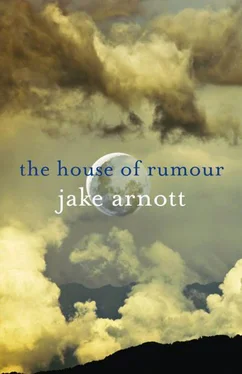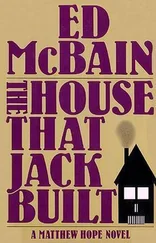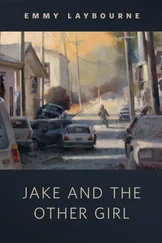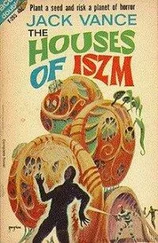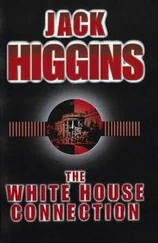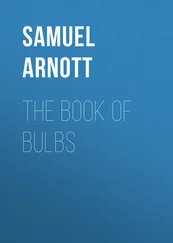The devil taught me. Just as my mother and my stepfather did. And all the casting directors that Mother told me to be nice to. Dexter Roth was the first person I met in show business who didn’t want to demean me. He cast me in Fugitive Alien because he said I had a luminous kind of innocence. He saw that I could have been the right kind of star. By that time I had forgotten all about the cult in Manhattan Beach, but when we started rehearsing all these strange flashbacks came to me. I got to know Larry Zagorski when he was doing the rewrites. He seemed to understand me. Dexter encouraged me to go deep into my character, to imagine what it would actually be like to meet someone from another world. I know now that this was a message because one night after filming I saw my first flying saucer hovering over the Hollywood Hills.
The film itself used actual footage of a UFO. It’s become quite well known; people still remember me from it. A ‘cult’ movie, they call it: now, doesn’t that tell you something? Mary-Lou Gunderson who directed it was a bit cold towards me. Maybe she knew that I had been involved with the house at Manhattan Beach and Operation Paperclip. It was those people who killed her ex-lover, the rocket scientist Jack Parsons, by blowing up his laboratory. He knew too many of their secrets and had planned to use his technical skills in Israel. The Nazis certainly didn’t want the Jews to have their own missile programme.
But wait a minute, no. This was after we’d finished filming. No, I think Mary-Lou was hostile because she and Larry had had something in the past. Larry always claimed that they’d never slept together but he was certainly still in love with her when we started dating. It didn’t bother me to begin with but I didn’t realise then what a mess Larry was in.
At first, you see, he’d listen to what I had to say. He’d let me talk without interrupting. And I thought he understood. I read everything that he wrote when we first started seeing each other and it all made sense to me. The problem was that he didn’t understand his own writing. He didn’t understand how he was being used. They had got to him and were using him to send messages. He didn’t even know it.
I saw all the good things in Larry then. We fell in love and got married. But it was me that supported us both, before he’d had any real success with his books. I’d imagined that writers could make good money just by getting their stuff into print, but this wasn’t the case. Larry worked like a demon: he sold stories to magazines and wrote the occasional script for the Dimension X radio programme. But they didn’t pay that well. Then he had a couple of short novels published. Larry complained that they paid only a five-hundred-dollar advance with little chance of royalties. He hardly made enough money to keep going without me.
I was struggling to make some sort of career for myself. I was the female lead in a couple of B-movies: Dead Men’s Tales and Dangerous Juvenile ; I got a small part in The Blue Gardenia . All the time I was preyed upon by directors, producers, studio men. I even tried to get Larry more screenwriting work but he wasn’t interested. Oh no, he always had a story to finish or a great novel to start.
I’d come home from work to find him unshaven and barely dressed, hammering away on his typewriter in a sort of trance. He hardly noticed me when he was inspired. I often wondered where all this writing came from. It’s all out there somewhere, isn’t it? You have to tune in and it all gets typed out. But I learnt this only later when I met the Watchers.
I know that people now think of me as the crazy one in that marriage but both me and Larry had psychological problems. And it was Larry who was taking all those drugs, drinking all the time. Gin or vodka or both, with lime juice and lots of sugar. He’d picked up a reefer habit, too, from Nemo, his Cuban friend he wrote the film with. Then there was all his prescribed medication. Semoxydrine for his anxiety, Nembutal to help him sleep, and any number of other drugs he tried along the way. He became quite the pharmacist, knowing all these pills with names as curious as the alien life in his fiction. It became a running joke that he would be ‘on planet Dexedrine’ or ‘in the fabled city of Pentobarbital’.
Larry tried to blame his mental instabilities on his wartime experiences but I knew that his problems were deeper than that. Neurotic conditions, labyrinthitis, vertigo, agoraphobia. He’d been seeing a psychiatrist before the war. He had all these confused feelings of guilt and anxiety, mostly about his mother who, of course, never approved of me. And I had my own troubled childhood to deal with. An irresponsible mother, who taught me to always act seductively towards men. A stepfather, transformed from a kind and gentle man into a monster after a few drinks. When Larry was in liquor it would sometimes bring back awful memories.
‘There ain’t no devil, Sharleen,’ Stepfather would slur with bleary and lustful eyes. ‘It’s just God when he’s drunk.’
I went to a Dianetics therapist once. They did something called ‘auditing’ with this funny little machine like a lie detector called an ‘e-meter’. They said they could clear me of all the bad stuff in my head from the past. Larry didn’t approve. He said it was all baloney. He made me promise not to go again but he also asked me all these questions about it, like he was really curious. It was from the auditing that I first learnt about my past lives and started to have a clear idea of what had really happened in my childhood.
Nineteen-fifty-six was a really big year. I got a small part in the television soap opera A Family Practice . I played Nancy, a new character to the series, a secretary in the Henderson law firm. It was hard to know whether Nancy would become a regular or not: there were hints of a romantic storyline between her and Adam Henderson, the son of Buck Henderson, the gruff patriarch of the show. But Buck didn’t approve of his son’s interest in Nancy, the flirtatious blonde, so it could go either way. There was a chance of some stability in our lives for a while. Back then I was happy to work so that Larry could write at home and not worry about the bills. That was before I found out what was really going on.
Nineteen-fifty-six was a big year all right. It was the year of the flood.
It was in November that me and Larry went along to a meeting of a local flying saucer club. This was unusual: Larry had cut himself off from all sorts of social groups that might have interested him in the past. He had long since stopped attending the Los Angeles Science Fiction Society that met at Clifton’s Cafeteria. He said that he didn’t want to get stuck in what he called the ‘SF ghetto’. But a member of this club had written a charming letter, inviting Larry to talk about his work. I think it gave him some encouragement. Anyway, we were treated like celebrities. Larry pretended that he didn’t care for all the attention but you could tell that secretly he loved it. Actually, I think that he was even slightly resentful of the fact that more people knew who I was that night. Some of them had seen me in Fugitive Alien ; a few recognised me from A Family Practice . And after Larry had talked, as many of them wanted to ask me questions as they did him. I saw him frowning when I told everybody that I had seen a flying saucer. So I got him to talk about the strange ‘foo fighters’ that he had witnessed during the war when he was in the air force.
At the end of the meeting a woman called Martha came up to me and Larry. She said that she was part of a group called the Watchers who met in a community church near by. It was a kind of study group for people who wanted to know more about the visitors from other worlds. Martha said that they had already made contact and there were warning signs of some great disaster ahead. She invited us along. Larry was very polite but I caught this kind of mocking half-smile on his lips.
Читать дальше
